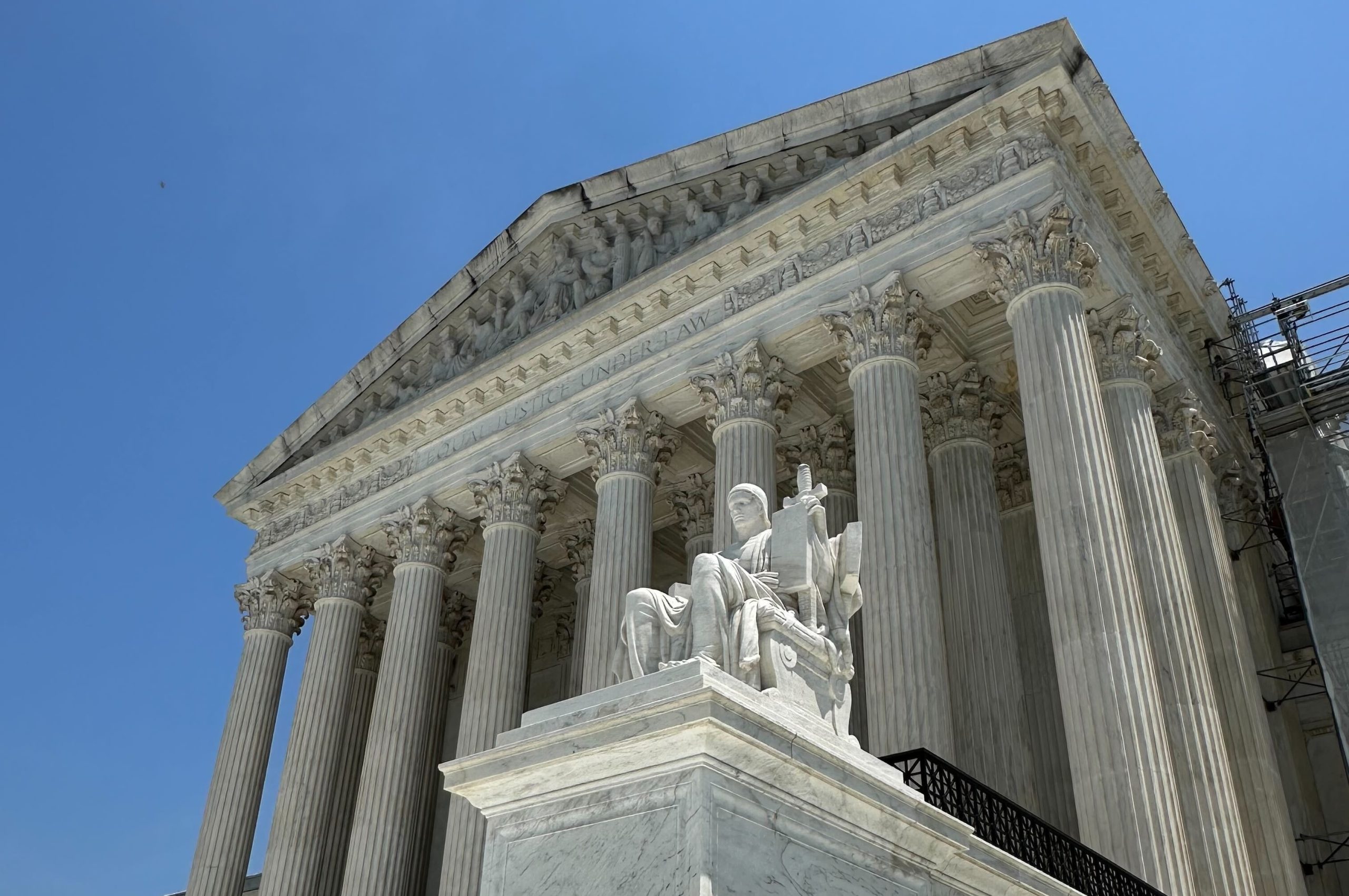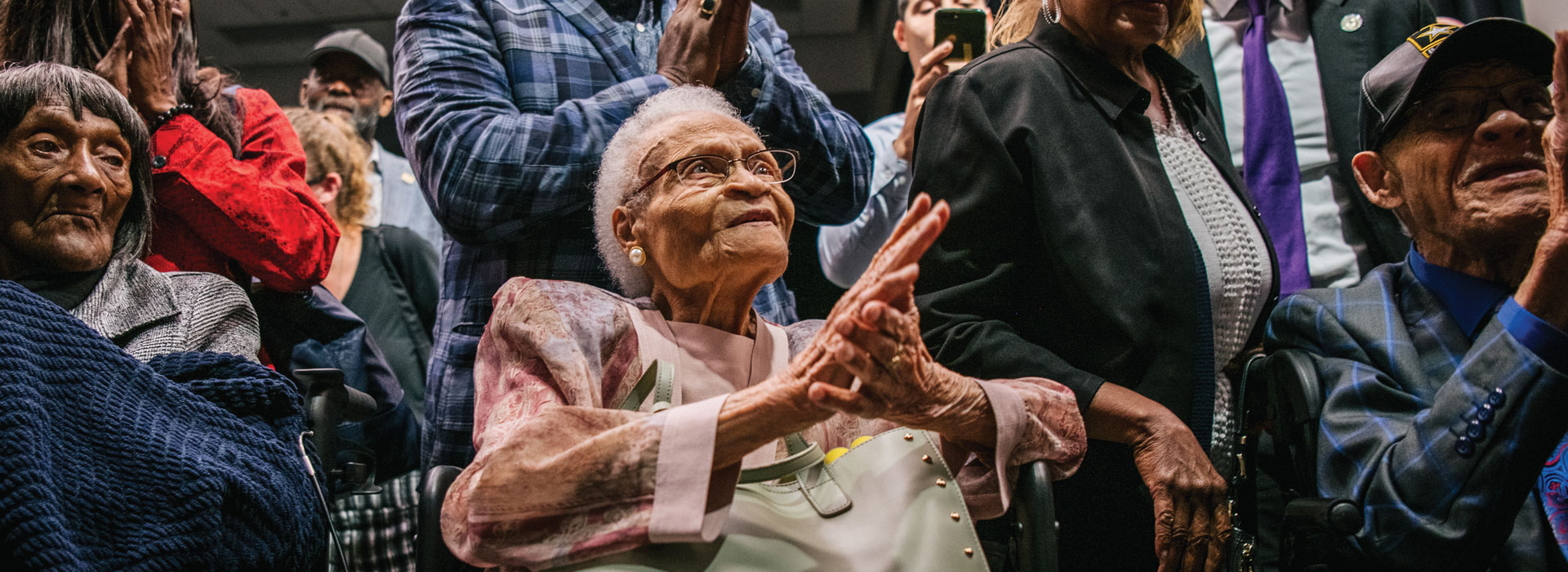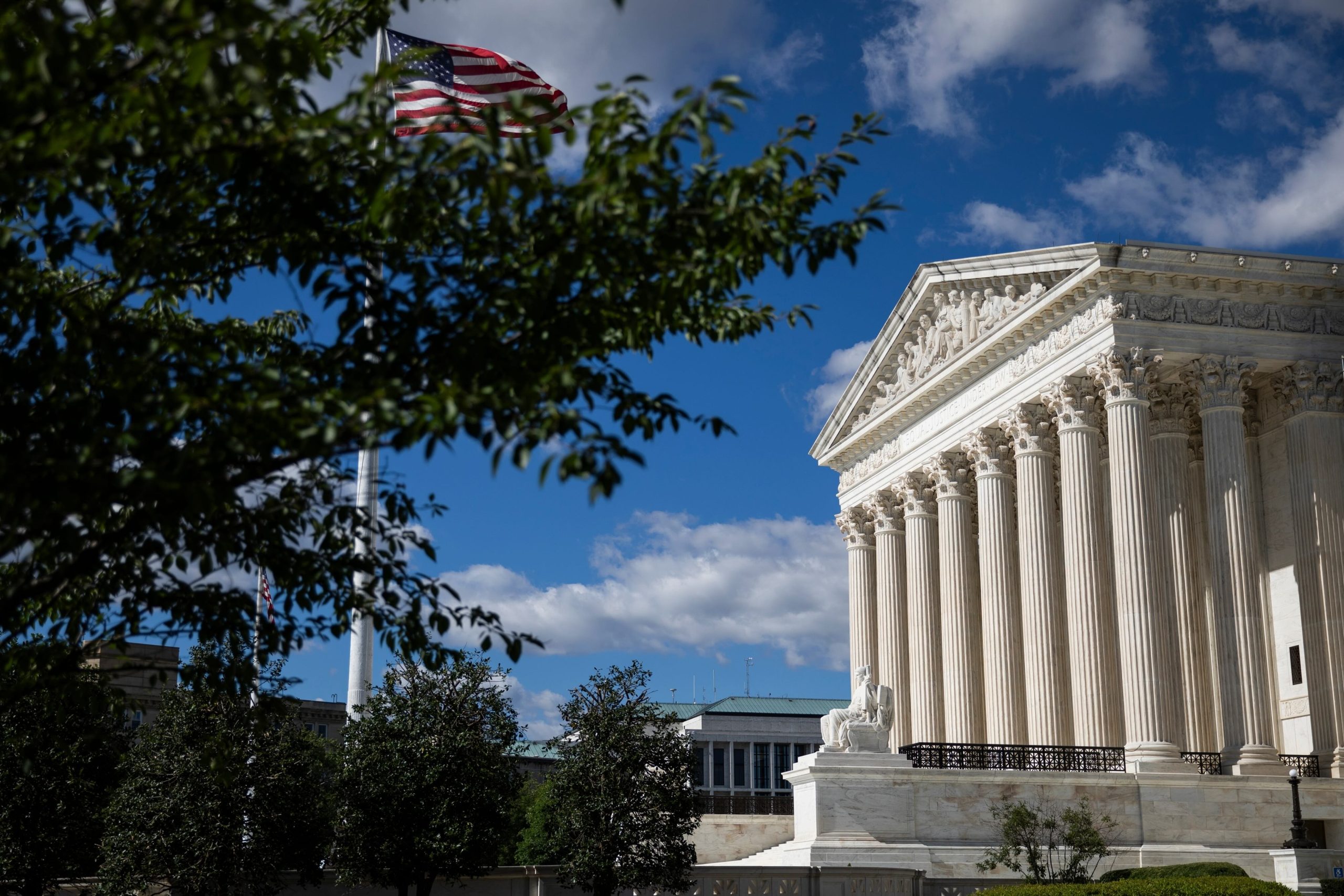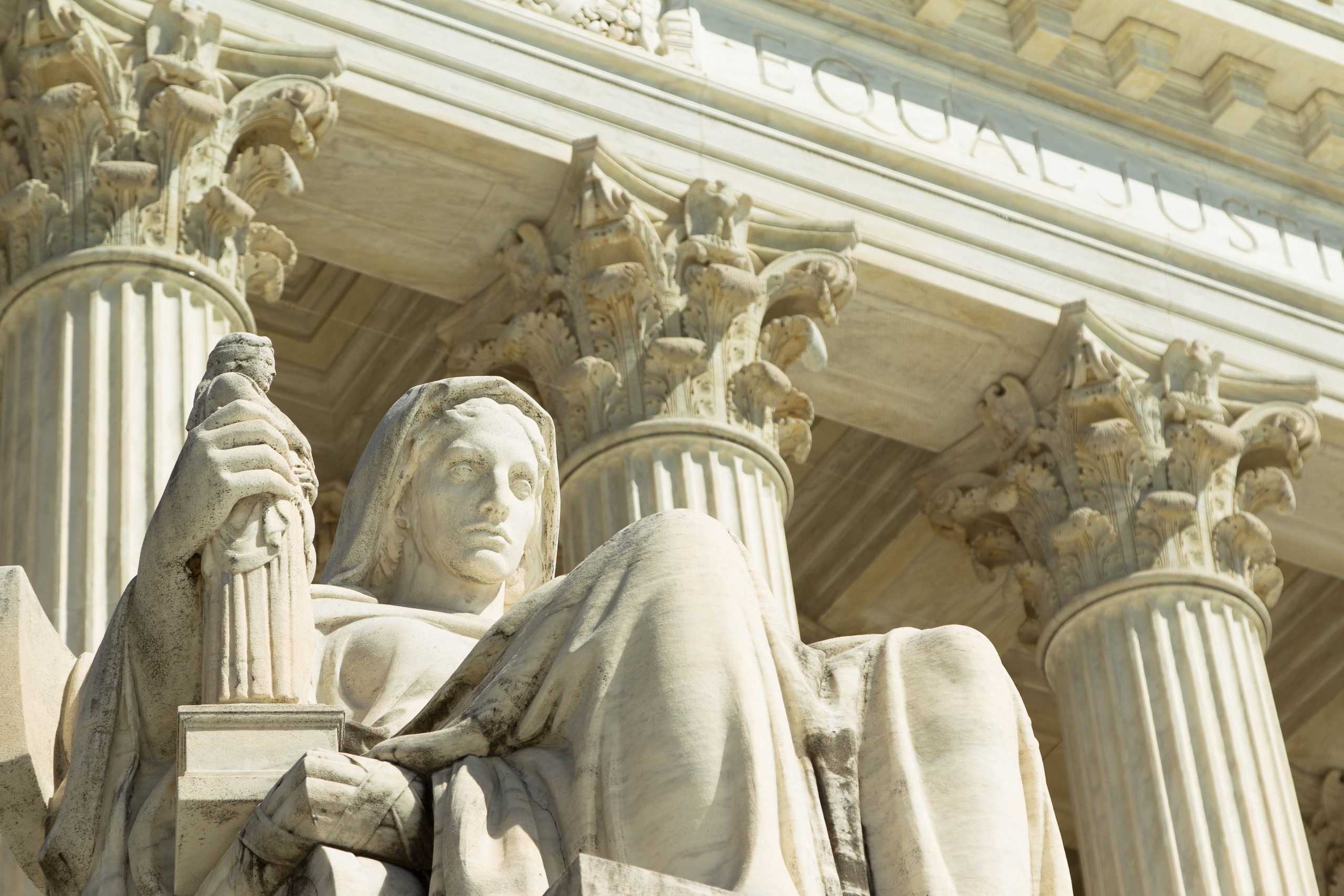Justices rule Trump has some immunity from prosecution
OPINION ANALYSIS
on Jul 1, 2024
at 12:26 pm
The justices handed a significant victory to former President Donald Trump in Trump v. United States on Monday. (Katie Barlow)
In a historic decision, a divided Supreme Court on Monday ruled that former presidents can never be prosecuted for actions relating to the core powers of their office, and that there is at least a presumption that they have immunity for their official acts more broadly.
The decision left open the possibility that the charges brought against former President Donald Trump by Special Counsel Jack Smith – alleging that Trump conspired to overturn the results of the 2020 election – can still go forward to the extent that the charges are based on his private conduct, rather than his official acts.
The case now returns to the lower courts for them to determine whether the conduct at the center of the charges against Trump was official or unofficial – an inquiry that, even if it leads to the conclusion that the charges can proceed, will almost certainly further delay any trial in the case, which had originally been scheduled to begin on March 4, 2024 but is currently on hold.
Writing for the majority, Chief Justice John Roberts emphasized that the president “is not above the law.” But Justice Sonia Sotomayor, in a dissent joined by Justices Elena Kagan and Ketanji Brown Jackson, countered that if a future president “misuses official power for personal gain, the criminal law that the rest of us must abide will not provide a backstop.”
The decision was the latest chapter in a case that began last year, when Trump was indicted on four counts arising from Smith’s investigation into the Jan. 6, 2021, attacks on the U.S. Capitol. The indictment contended that Trump created “widespread mistrust … through pervasive and destabilizing lies about election fraud” and then conspired to undermine “a bedrock function of the United States federal government: the nation’s process of collecting, counting, and certifying the results of the presidential election.”
Trump asked Chutkan to throw out the charges against him, arguing that he is immune from prosecution because he was the president. Chutkan turned that request down in early December, explaining that the presidency does not “confer a lifelong ‘get-out-of-jail-free’ pass.”
Smith went to the Supreme Court later that month, asking the justices to weigh in on Trump’s immunity without waiting for the U.S. Court of Appeals for the District of Columbia Circuit to rule on Trump’s appeal. But the justices declined to do so, and it was six weeks – Feb. 6, 2024 – before the court of appeals issued its opinion rejecting Trump’s claim to immunity.
Trump then came to the Supreme Court, seeking review of the D.C. Circuit’s ruling. Two weeks later, the justices agreed to take up his case. They scheduled the argument for late April – putting the case on a faster track than it normally would have been, but a slower schedule than they had established for another case involving Trump, the challenge to Colorado’s disqualification of the former president from its ballot for his role in the Jan. 6, 2021, attacks. That case was set for argument just over one month after the court announced that it would review the case in January, and the court issued its decision for Trump just under one month after the oral argument.
In a ruling on the last day before the Supreme Court’s summer recess, and just over two months after the oral argument, a majority of the court rejected the D.C. Circuit’s reasoning. As an initial matter, Roberts explained in his 43-page ruling, presidents have absolute immunity for their official acts when those acts relate to the core powers granted to them by the Constitution – for example, the power to issue pardons, veto legislation, recognize ambassadors, and make appointments.
That absolute immunity does not extend to the president’s other official acts, however. In those cases, Roberts reasoned, a president cannot be charged unless, at the very least, prosecutors can show that bringing such charges would not threaten the power and functioning of the executive branch. And there is no immunity for a president’s unofficial acts.
Determining which acts are official and which are unofficial “can be difficult,” Roberts conceded. He emphasized that the immunity that the court recognizes in its ruling on Monday takes a broad view of what constitutes a president’s “official responsibilities,” “covering actions so long as they are not manifestly or palpably beyond his authority.” In conducting the official/unofficial inquiry, Roberts added, courts cannot consider the president’s motives, nor can they designate an act as unofficial simply because it allegedly violates the law.
Turning to some of the specific allegations against Trump, the majority ruled that Trump cannot be prosecuted for his alleged efforts to “leverage the Justice Department’s power and authority to convince certain States to replace their legitimate electors with Trump’s fraudulent slates of electors.”
With regard to the allegation that Trump attempted to pressure his former vice president, Mike Pence, in his role as president of the senate, to reject the states’ electoral votes or send them back to state legislatures, the court deemed Trump “presumptively immune” from prosecution on the theory that the president and vice president are acting officially when they discuss their official responsibilities. On the other hand, Roberts observed, the vice president’s role as president of the senate is not an executive branch role. The court therefore left it for the district court to decide whether prosecuting Trump for this conduct would intrude on the power and operation of the executive branch.
The court did the same for the allegations in the indictment regarding Trump’s interactions with private individuals and state officials, attempting to convince them to change electoral votes in his favor, as well as Trump’s tweets leading up to the Jan. 6 attacks and his speech on the Ellipse that day. Making this determination, Roberts wrote, will require “a close analysis of the indictment’s extensive and interrelated allegations.”
Roberts pushed back against the dissent by Sotomayor and a separate one by Justice Ketanji Brown Jackson, describing them as striking “a chilling tone of doom that is wholly disproportionate to what the Court actually does today.” He portrayed the ruling as a relative narrow one that decides only “that immunity extends to official discussions between the President and his Attorney General, and then remand to the lower courts” for them to determine whether the other acts alleged in the indictment are entitled to immunity.
In her dissent, which (like Jackson’s) notably did not use the traditional “respectfully,” Sotomayor contended that Monday’s ruling “reshapes the institution of the Presidency.” “Whether described as presumptive or absolute,” she wrote, “under the majority’s rule, a President’s use of any official power for any purpose, even the most corrupt, is immune from prosecution. That is just as bad as it sounds, and it is baseless.” “With fear for our democracy,” she concluded, “I dissent.”
This article was originally published at Howe on the Court.






